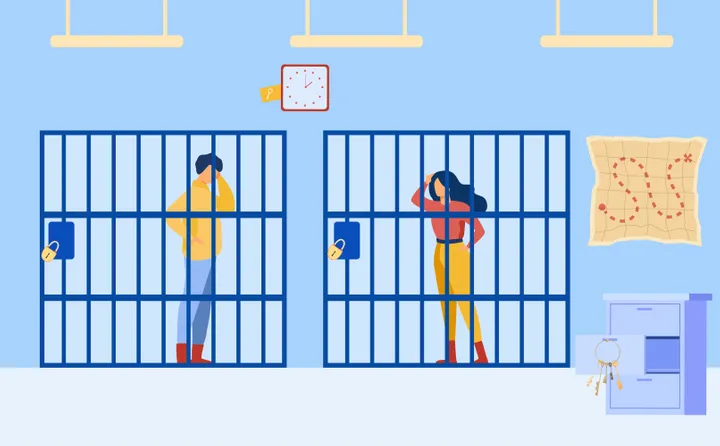In recent years, gaming has evolved from a niche hobby into a global phenomenon, captivating people of all ages and backgrounds. While it is often associated with entertainment and escapism, there is a growing body of evidence that suggests gaming can also have profound cognitive benefits.
Among these is the enhancement of problem-solving skills, as seen in the incredible escape room games. This article explores how gaming can sharpen your ability to solve problems, making you a more effective thinker in both virtual and real-world scenarios.
The Cognitive Demands of Gaming
One of the primary reasons gaming is so effective at enhancing problem-solving skills is the cognitive demands it places on players. Many games, particularly those in genres like strategy, puzzle, and role-playing, require players to think critically, plan ahead, and make decisions under pressure. These cognitive challenges mirror the problem-solving processes we encounter in everyday life.
For example, strategy games such as “StarCraft” or “Civilization” require players to manage resources, plan long-term strategies, and adapt to changing circumstances. These games often involve complex decision trees where the player must weigh the pros and cons of various actions, much like making decisions in real life. This constant engagement with complex scenarios helps players develop their ability to think strategically and solve problems more effectively.
Encouraging Creative Thinking
Unlike the structured problems found in traditional educational settings, gaming challenges are often open-ended, requiring creative solutions. This fosters a type of creative problem-solving that can be transferred to real-world situations. Consider the popular puzzle game “Portal.”
In this game, players must navigate through a series of increasingly complex environments using a device that creates interconnected portals. The puzzles in “Portal” often have multiple solutions, encouraging players to experiment and find creative ways to achieve their objectives. This type of problem-solving is not only fun but also helps players develop a mindset that is flexible and adaptable, which is invaluable in both personal and professional settings.
Learning from Failure
One of the most powerful aspects of gaming is the way it encourages learning from failure. In many games, failure is not only common but expected. Whether it’s losing a life in “Super Mario” or failing to complete a mission in “Grand Theft Auto,” games often push players to learn from their mistakes and try again.
In the real world, fear of failure can often hinder problem-solving, as individuals may be reluctant to take risks or explore new solutions. Gaming, however, normalizes failure and reframes it as a stepping stone to success. Players learn to persist through challenges, analyze what went wrong, and adjust their approach accordingly. This resilience is a key problem-solving skill that can be applied to a wide range of real-world situations, from academic challenges to workplace dilemmas.
Enhancing Analytical Skills
Analytical thinking is another skill that gaming can enhance. Many games require players to analyze large amounts of information, identify patterns, and make informed decisions based on that analysis. This is particularly true in games that involve puzzles, resource management, or strategic planning.
In different games like “The Legend of Zelda: Breath of the Wild”, players must explore a vast open world, solve intricate puzzles, and engage in combat. Success in the game requires not just quick reflexes but also the ability to analyze the environment, understand enemy behavior, and plan effective strategies. By regularly engaging in this type of analytical thinking, players can develop sharper problem-solving skills that are directly applicable to real-life situations.
Collaboration and Communication
Many modern games also emphasize collaboration and communication, particularly in multiplayer settings. Whether it’s coordinating a raid in “World of Warcraft” or working together to solve puzzles in “Overcooked,” players must often work with others to achieve a common goal. This collaborative aspect of gaming helps players develop problem-solving skills in a social context.
Effective problem-solving often requires the ability to communicate ideas clearly, listen to others, and work together to find the best solution. Multiplayer games provide a unique environment for developing these skills, as players must navigate complex social dynamics while also tackling challenging in-game problems. The teamwork and communication skills honed in these virtual environments can be incredibly valuable in real-world situations, such as group projects at school or collaborative tasks at work.
Applying Gaming Skills to Real Life
The skills developed through gaming are not confined to the virtual world; they can be applied to a wide range of real-life scenarios. Whether it’s navigating the complexities of a challenging work project, solving a difficult mathematical problem, or simply managing daily life more effectively, the problem-solving skills honed through gaming can provide a significant advantage.
Moreover, as gaming continues to grow in popularity, the stigma that once surrounded it is fading. More and more people are recognizing the cognitive benefits of gaming, and it is increasingly being integrated into educational and professional development programs. For example, some schools are using game-based learning to teach problem-solving and critical thinking skills, while companies are incorporating gamification into their training programs to enhance employee performance.
Conclusion
By engaging with complex scenarios, encouraging creative thinking, fostering resilience through failure, and enhancing analytical skills, gaming can significantly improve your problem-solving abilities. Whether you’re a casual gamer or a dedicated enthusiast, the skills you develop in the virtual world can have a profound impact on your real-world problem-solving capabilities. So, the next time you pick up a controller or log into your favorite game, remember that you’re not just playing—you’re training your brain to solve the challenges of tomorrow.

